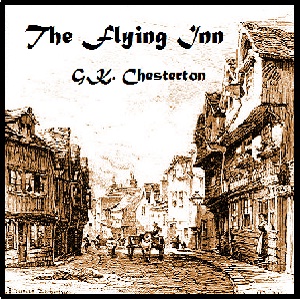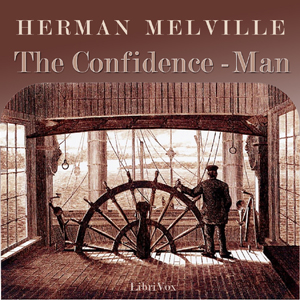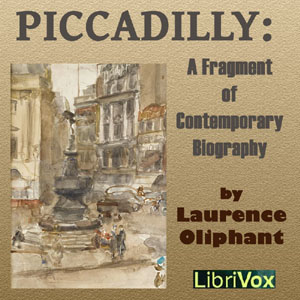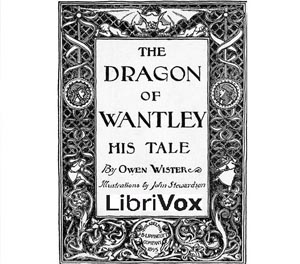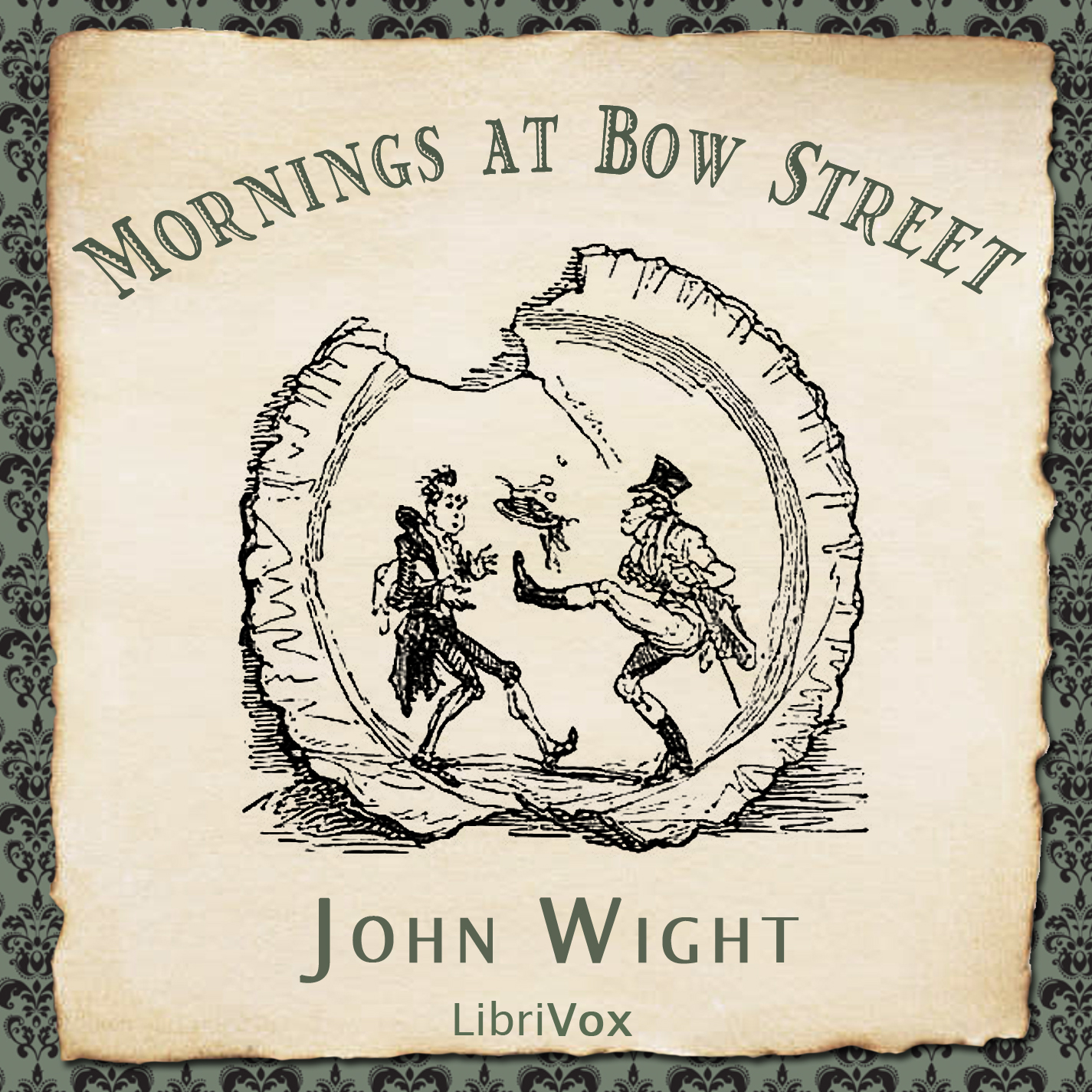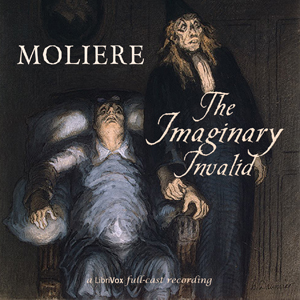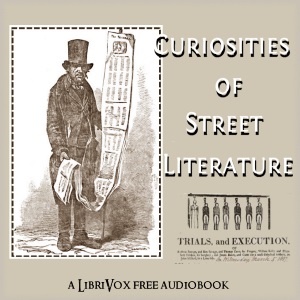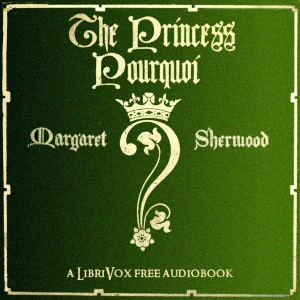O nome do autor é ocasionalmente grafado como Dostoievsky – foi um escritor russo, considerado um dos maiores romancistas da literatura russa e um dos mais inovadores artistas de todos os tempos.Nesta obra, que lembra uma peça de teatro, é feita uma sátira à hipocrisia das relações sociais na "sociedade" de Mordassov, e às personagens dessa sociedade que se baseiam em intrigas e mentiras para sustentar o seu nível social.Publicada em português em 1908. (Resumo adaptado da Wikipédia por Vicente)
15 episodes
The Flying Inn is a novel first published in 1914 by G.K. Chesterton. It is set in a future England where a bizarre form of "Progressive" Islam has triumphed and largely dominates the political and social life of the country. Because of this, alcohol sales are effectively prohibited. The plot centers around the adventures of Humphrey Pump and Captain Patrick Dalroy, who roam the country in their cart with a barrel of rum in an attempt to evade Prohibition, exploiting loopholes in the law to temporarily prevent the police taking action against them. (Summary from Wikipedia)
25 episodes
Orley Farm is Trollope at his best (as good as the Barsetshire series), which means some of the best characterizations in the English language. Trollope's people are real; the beleaguered Lady Mason, charged with forging a will; the aged lover Sir Peregrine Orme; Madeleine Stavely, deeply but practically in love; the shallow, fickle Sophia Furnival and others are 3-dimensional figures that live and breathe. His satire of the so-called "justice" system is the best kind of satire: he just describes the court proceedings as they really are. The result is as up-to-date as today's newspaper. (Introduction by Leonard Wilson)
80 episodes
The House with the Green Shutters is a novel by the Scottish writer George Douglas Brown, first published in 1901 by John MacQueen. Set in mid-19th century Ayrshire, in the fictitious town of Barbie which is based on his native Ochiltree, it consciously violates the conventions of the sentimental kailyard school, and is sometimes quoted as an influence on the Scottish Renaissance.
The novel describes the struggles of a proud and taciturn carrier, John Gourlay, against the spiteful comments and petty machinations of the envious and idle villagers of Barbie (the "bodies"). (Introduction by Wikipedia)
*additional PL by Linette Geisel
27 episodes

Fifth novel in the Barsetshire series, The Small House at Allington is largely focused on the Small House's inhabitants, Mrs. Dale and her two marriageable daughters, Lily and Bell. The two girls, of course, have suitors: their cousin, Bernard Dale, his friend Adolphus Crosbie, and the local boy, Johnny Eames, whose career in London is to mark him as far more than the "hobbledehoy" that he has earlier been considered. Crosbie is a social climber, and his connection with the dysfunctional de Courcys of Barsetshire give the author a chance for a splendid portrayal of an aristocratic family in decline. As with many of AT's novels, there are subplots as well, and many pictures of rural life standing in contrast to that of London. Some critics have seen in the portrayal of Johnny Eames something of an autobiographical exercise on Trollope's part.(Summary by Nicholas Clifford)
Novels in the series are
1-The Warden
1-The Warden(version 2)
2-Barchester Towers
3-Doctor Thorne
4-Framley Parsonage
5-The Small House at Allington
6-The Last Chronicle of Barset
60 episodes
A satirical look at early biblical events from the point of view of someone who was there to witness most of them: the oldest man in recorded history. (Introduction by Matthew Reece)
10 episodes

Un estudiante que huye de la justicia, don Cleofás, entra en una buhardilla de un astrólogo y allí libera a un diablo encerrado en una redoma, quien en agradecimiento, levanta los tejados de Madrid y le enseña todas las miserias, trapacerías y engaños de sus habitantes. El Diablo Cojuelo es un diablo que, lejos de ser una forma maligna, se le representa como «el espíritu más travieso del infierno», trayendo de cabeza a sus propios congéneres demoníacos. Se dice así mismo como inventor de danzas, música y literatura de carácter picaresco y satírico. Siendo uno de los primeros ángeles en levantarse en celestial rebelión, fue el primero en caer a los infiernos, aterrizando el resto de sus «hermanos» sobre él, dejándole «estropeado» y «más que todos señalado de la mano de Dios». De ahí viene su sobrenombre de «Cojuelo». Pero no por cojo es menos veloz y ágil. (Adaptación de Wikipedia)
11 episodes
The Confidence-Man: His Masquerade was the last major novel by Herman Melville, the American writer and author of Moby-Dick. Published on April 1, 1857 (presumably the exact day of the novel's setting), The Confidence-Man was Melville's tenth major work in eleven years. The novel portrays a Canterbury Tales-style group of steamboat passengers whose interlocking stories are told as they travel down the Mississippi River toward New Orleans. The novel is written as cultural satire, allegory, and metaphysical treatise, dealing with themes of sincerity, identity, morality, religiosity, economic materialism, irony, and cynicism. Many critics have placed The Confidence-Man alongside Melville's Moby-Dick and "Bartleby the Scrivener" as a precursor to 20th-century literary preoccupations with nihilism, existentialism, and absurdism. (Introduction by Wikipedia)
19 episodes

From the author of Peter Pan:
Lord Loam, a British peer, considers class divisions to be artificial. He promotes his views during tea-parties where servants mingle with his aristocratic guests, to the embarrassment of all. Crichton, his butler, particularly disapproves of this.
Loam, his family, a maid, and Crichton are shipwrecked on a deserted tropical island. The resourceful Crichton is the only one of the party with any practical knowledge. Eventually, social roles are reversed, and Crichton becomes the governor. (Intro from Wikipedia & TriciaG)Cast (in order of appearance)Storyteller/Stage Directions: TriciaGErnest Woolley: AnthonyCrichton: Algy PugLady Agatha Lasenby: Arielle LipshawLady Catherine Lasenby: Tina NuzziLady Mary Lasenby: Elizabeth KlettMr. Treherne: Ernst PattynamaLord Loam: Paul AndrewsLord Brocklehurst: DerekPMonseur Fleury: Beverly ScottMiss Fisher: KalyndaMr. Tompsett & Naval Officer: Bill MosleyTweeny: BumbleVeeLady Brocklehurst: Michelle R. WoodAudio edited by: TriciaG
4 episodes
Laurence Oliphant, author, international traveller, diplomatist and mystic, who spent a decade in later life under the influence of the spiritualist prophet Thomas Lake Harris, writes here under the amusing guise of Lord Frank Vanecourt, bringing us a veritable pot-pourri of events from everyday life in 1865 as he moves amongst the great, the good, and not so good who reside in the exclusive area of London's Piccadilly W1 and its surroundings. (Introduction by Nigel Carrington)
13 episodes

Woe from Wit (Russian: Горе от ума, also translated as "The Woes of Wit", "Wit Works Woe" and so forth) is Alexander Griboedov's comedy in verse, satirizing the society of post-Napoleonic Moscow, or, as a high official in the play styled it, "a pasquinade on Moscow."The play, written in 1823 in the countryside and in Tiflis, was not passed by the censorship for the stage, and only portions of it were allowed to appear in an almanac for 1825. But it was read out by the author to "all Moscow" and to "all Petersburg" and circulated in innumerable copies, so it was as good as published in 1825; it was not, however, actually published until 1833, after the author's death, with significant cuts, and was not published in full until 1861.The play was a compulsory work in Russian literature lessons in Soviet schools, and is still considered a golden classic in modern Russia and other Russian-speaking countries.The play gave rise to numerous catch phrases in the Russian language, including the title itself. Many of them sound rather comic today because of their somewhat archaic language. (Introduction by Wikipedia)
10 episodes
The "true" story of the Wantley Dragon. Set at Christmas time, it is a tale of a Baron, his daughter, a brave knight, True Love, and the terrible Dragon of Wantley. Oh, and don't forget the wine. (Summary by D. A. Frank )
11 episodes

Headlong Hall is the first novel by Thomas Love Peacock, published in 1815 (dated 1816). As in his later novel Crotchet Castle, Peacock assembles a group of eccentrics, each with a single monomaniacal obsession, and derives humor and social satire from their various interactions and conversations. The setting is the country estate of Squire Harry Headlong Ap-Rhaiader, Esq. in Wales. (Summary by Wikipedia)Cast
Narrator: Timothy Ferguson
Mr. Escot: John Fricker
Mr. Foster: Mike Pelton
Mr. Jenkison: Leonard Wilson
Reverend Doctor Gaster & Mr. Chromatic: ToddHW
Mr. Milestone: TriciaG
Harry Headlong, Esquire & Old Squire: Algy Pug
Mr. MacLaurel: Delmar H. Dolbier
Mr. Cranium, Mr. Panscope, Graziosa Chromatic, Mr. Nightshade: Amy Gramour
The Sexton: Martin Geeson
Miss Brindle-mew: Ruth Golding
Cephalis & Tenorina Chromatic: Liberty Stump
Mr. Gall & Mr. Treacle: hoardac
Sir Patrick O'Prism: DublinGothic
Miss Philomela Poppyseed: Bev J. Stevens
Caprioletta: Amanda Friday
Audio edited by: Amy Gramour
16 episodes
Gulliver's reizen is een satirisch boek uit 1726 van de Ierse schrijver Jonathan Swift.
Het oorspronkelijke boek bevatte vier reisbeschrijvingen, waarvan alleen de eerste, over het land Lilliput, nu nog grote bekendheid geniet. In deze uitgave zijn alleen de eerste twee delen van het oorspronkelijke werk opgenomen. Het tweede deel heet ‘Een reis naar Brobdingnag’. (Samenvatting door Wikipedia en Bart de Leeuw)Tijdens de productie schreef Marcel Coenders, die de tekstcontrole van dit boek verzorgde: "Een mooi boek. Uiteraard kennen we allemaal de een-regel-samenvatting van dit boek: Gulliver gaat op reis in Liliputterland en in Reuzenland. Goed om het verhaal nu eens in een vollere omvang te beluisteren. Zeker geen kinderboekje."
16 episodes
This is a collection of various articles found in Morning Herald columns. Some are found interesting, some may be hilarious! The 84 pieces of this book are actual reports throughout the 1870s newspaper written by the reporter, John Wight and Illustrated by George Cruikshank (Summary by Chris Caron)
22 episodes
Young Laroon plans to marry Isabel, but Father Martin manipulates Isabel's father, Jourdain, in order to seduce Isabel. However, other characters, including both of the Laroons, try to manipulate Jourdain for their own ends; they accomplish it through disguising themselves as priests and using his guilt to convince him of what they say. As Father Martin pursues Isabel, she is clever enough to realize what is happening and plans her own trap. After catching him and exposing his lust, Father Martin is set to be punished. (Summary by Wikipedia) (Summary by Wikipedia)Cast:Old Laroon: Noel BadrianYoung Laroon: Chris MarcellusFather Martin: Nathanial W.C. HigginsOld Jourdain: Kevin GreenIsabel: Arielle LipshawBeatrice: Michele EatonServant/Priest: Elizabeth KlettNarrator/Prologue: Lucy PerryAudio edited by: Arielle Lipshaw
3 episodes
Bennett's essays always provide food for thought and bring a wry smile to the lips. Human nature, it appears, changes little over the ages, and Bennett, as always, stands the test of time, though in the case of some of the essays in this eclectic collection, it is well to remember that they were written at the time of the First World War and the fight for women's suffrage. (Summary by Ruth Golding)
6 episodes

Jean-Baptiste Poquelin, known by his stage name Molière, was a French playwright and actor who is considered to be one of the greatest masters of comedy in Western literature. Among Molière's best-known works is Tartuffe or The Hypocrite, written in 1664. Though Tartuffe was received well by the public and even by Louis XIV, its popularity was lessened when the Archbishop of Paris issued an edict threatening excommunication for anyone who watched, performed in, or read the play.Tartuffe, a pious fraud who pretends to speak with divine authority, has insinuated himself into the household of Orgon. When Orgon announces that his daughter Mariane is to marry Tartuffe instead of her fiance Valère, the rest of the family realizes the extent of Tartuffe's influence over Orgon. Tartuffe tries to seduce Orgon's wife Elmire, who traps him into revealing to Orgon his intentions toward her. Orgon throws Tartuffe out of the house, Tartuffe returns with an order of eviction for the family, and at the final moment the tables are turned and the play ends happily. (Summary by Wikipedia and Laurie Anne Walden)
5 episodes
The Imaginary Invalid (French: Le Malade imaginaire) is a three-act comédie-ballet by the French playwright Molière. It was first performed in 1673 and was the last work he wrote. In an ironic twist of fate, Molière collapsed during his fourth performance as Argan on 17 February and died soon after. (Summary by Wikipedia)
Cast:
Argan, an imaginary invalid: Allen Johns
Beline, second wife to Argan: Nadine Eckert-Boulet
Angelique, daughter to Argan: Arielle Lipshaw
Louison, Argan's young daughter: Elizabeth Klett
Beralde, brother to Argan: Delmar H. Dolbier
Cleante, lover to Angelique: mb
Mr. Diafoirus, a physician: Wupperhippo
Thomas Diafoirus, his son: engineerdst
Mr. Purgon, physician to Argan: Bellona Times
Mr. Fleurant, an apothecary/Mr. De Bonnefoi, a notary: Alan Mapstone
Toinette, maidservant to Argan: Availle
Narrator: ToddHW
Audio edited by Arielle Lipshaw
3 episodes
Before Downton Abbey, there was Mary Broome. In Allan Monkhouse's 1911 satire, when the son of a middle-class household gets their housemaid pregnant, the two families must try to combine their very different values. (Summary by wildemoose)Cast:Sheila Ray: GraceAda Timbrell: Charlotte DuckettEdgar Timbrell: mbMary Broome: Arielle LipshawLeonard Timbrell: balaMrs. Timbrell: Elizabeth KlettEdward Timbrell: ToddHWMaid: Beth ThomasMr. Pendleton: CalmDragonMrs. Pendleton: Tara DowMrs. Greaves: AvailleJohn Broome: John SteigerwaldMrs. Broome: CaprishaPageNarrator: MaryAnn SpiegelAudio edited by: Arielle Lipshaw
4 episodes
This audiobook is a collection of Mark Twain's anti-imperialist writings (newspaper articles, interviews, speeches, letters, essays and pamphlets). (Summary by Vineshen Pillay)
11 episodes
"The range of subjects treated in this book is wonderful, even to me. It is a library of universal knowledge, and the facts contained in it are different from any other facts now in use. I have carefully guarded, all the way through, against using hackneyed and moth-eaten facts. As a result, I am able to come before the people with a set of new and attractive statements, so fresh and so crisp that an unkind word would wither them in a moment." - Summary by The Author
96 episodes
This is one of three plays Shaw published as Plays Unpleasant in 1898; they were termed "unpleasant" because they were intended, not to entertain their audiences—as traditional Victorian theatre was expected to—but to raise awareness of social problems and to censure exploitation of the laboring class by the unproductive rich. In this play, Dr. Harry Trench becomes disillusioned when he discovers how his fiancee's father, Mr. Sartorius, makes his money. However, it is soon revealed that Trench's own income is far from untainted. (Summary by wildemoose and Wikipedia)Cast:Dr. Harry Trench: engineerdstMr. William de Burgh Cokane: David GoldfarbMr. Sartorius: DrakaunusBlanche Sartorius: Arielle LipshawMr. Lickcheese: Algy PugWaiter: balaPorter: David OlsonParlour Maid/Narrator: Elizabeth KlettAudio edited by: Arielle Lipshaw
3 episodes
Dubliners is a collection of 15 short stories by James Joyce, first published in 1914. They form a naturalistic depiction of Irish middle class life in and around Dublin in the early years of the 20th century. The stories were written when Irish nationalism was at its peak and a search for a national identity and purpose was raging; at a crossroads of history and culture, Ireland was jolted by various converging ideas and influences. They centre on Joyce's idea of an epiphany: a moment where a character experiences self-understanding or illumination. Many of the characters in Dubliners later appear in minor roles in Joyce's novel Ulysses. The initial stories in the collection are narrated by child protagonists, and as the stories continue, they deal with the lives and concerns of progressively older people. This is in line with Joyce's tripartite division of the collection into childhood, adolescence, and maturity. (Summary from Wikipedia)
16 episodes
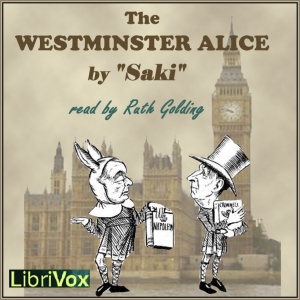
Published five years before John Kendrick Bangs had the same idea with Alice in Blunderland, Saki, in his 1902 series of satirical articles, takes an Alice in Wonderland view of British politics, which Alice finds even stranger than events in Wonderland.In all honesty, owing to its extremely topical nature this political satire hasn't worn well, which explains why it has virtually sunk without trace. To appreciate it at all, it's really rather necessary to understand the topical references. I am no historian, least of all a political historian, but I have researched it as well as I can, and made some notes in an attempt to put the events and characters into their political context for the listener. My notes may be found on the Internet Archive in audio form or in text form.I hope that this may still appeal to the political sceptic of today. With some basic understanding of the situation, I found the satire bitingly keen at points, and was left with the feeling that some aspects of British politics have changed little in more than a century, although current political satire sadly lacks Saki's wit. As the Red Queen says: "I don't know what business you have here, if you don't belong to the Cabinet; of course... there are so many of them, and they're mostly so unimportant that one can't be expected to remember all their faces." (Introduction by Ruth Golding)
12 episodes

A Tale of a Tub was the first major work written by Jonathan Swift, composed between 1694 and 1697, that was eventually published in 1704. It is arguably his most difficult satire, and perhaps his most masterly. The Tale is a prose parody which is divided into sections of "digression" and a "tale" of three brothers, each representing one of the main branches of western Christianity. A Tale was long regarded as a satire on religion itself, and has famously been attacked for that, starting with William Wotton. The "tale" presents a consistent satire of religious excess, while the digressions are a series of parodies of contemporary writing in literature, politics, theology, Biblical exegesis, and medicine. The overarching parody is of enthusiasm, pride, and credulity. At the time it was written, politics and religion were still linked very closely in England, and the religious and political aspects of the satire can often hardly be separated. "The work made Swift notorious, and was widely misunderstood, especially by Queen Anne herself who mistook its purpose for profanity." "It effectively disbarred its author from proper preferment within the church," but is considered one of Swift's best allegories, even by himself. It was enormously popular, but Swift believed it damaged his prospect of advancement in the Church of England. (Summary by Wikipedia)
13 episodes

Washington Irving, an author, biographer, historian, and diplomat, completed his first major work, a satire of contemporary local history and politics entitled A History of New-York from the Beginning of the World to the End of the Dutch Dynasty, by Diedrich Knickerbocker in 1809. Prior to its publication, Irving started a promotional hoax (not unlike some modern-day publicity stunts?) by placing fake missing persons advertisements in local newspapers asking for help in locating Diedrich Knickerbocker. As a continuation of the hoax, Irving also published a notice purported to be written by the proprietor of the hotel where Knickbocker was staying, in which he threatened to publish a manuscript “left behind” by Knickerbocker if the hotel bill was not paid. From “The Author’s Apology”: “The main object of my work, in fact, had a bearing wide from the sober aim of history, but one which, I trust, will meet with some indulgence from poetic minds. It was to embody the traditions of our city in an amusing form; to illustrate its local humors, customs and peculiarities; to clothe home scenes and places and familiar names with those imaginative and whimsical associations so seldom met with in our new country, but which live like charms and spells about the cities of the old world, binding the heart of the native inhabitant to his home.” - (Summary by lubee930 from the text and adapted from Wikipedia)
33 episodes
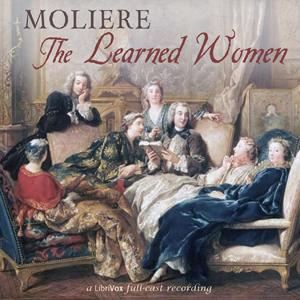
Two young people, Henriette and Clitandre, are in love, but in order to marry, they must overcome an obstacle: the attitude of Henriette's family. Her sensible father and uncle are in favour of the marriage; but unfortunately her father is under the thumb of his wife, Philaminte, Henriette's mother. And Philaminte, supported by Henriette's aunt and sister, wishes her to marry Trissotin, a "scholar" and mediocre poet with lofty aspirations, who has these three women completely in his thrall. For these three ladies are "learned"; their obsession in life is learning and culture of the most pretentious kind, and Trissotin is their special protégé and the fixture of their literary salon. - Summary by Wikipedia
Cast list:
Armande: Beth ThomasHenriette: Amanda FridayClitandre: MaloneBelise: Libby GohnAriste: Kingof192Chrysale: ToddHWMartine: Frances BrownPhilaminte: Claudia SaltoTrissotin: Zachary Brewster-GeiszLepine: balaVadius: Elliot GageJulian: russellhughesA Notary: Richard FridayNarrator: SavannahEdited by Michele Eaton
5 episodes

Washington Irving, an author, biographer, historian, and diplomat, completed his first major work, a satire of contemporary local history and politics entitled A History of New-York from the Beginning of the World to the End of the Dutch Dynasty, by Diedrich Knickerbocker in 1809. Prior to its publication, Irving started a promotional hoax (not unlike some modern-day publicity stunts?) by placing fake missing persons advertisements in local newspapers asking for help in locating Diedrich Knickerbocker. As a continuation of the hoax, Irving also published a notice purported to be written by the proprietor of the hotel where Knickbocker was staying, in which he threatened to publish a manuscript “left behind” by Knickerbocker if the hotel bill was not paid. From “The Author’s Apology”: “The main object of my work, in fact, had a bearing wide from the sober aim of history, but one which, I trust, will meet with some indulgence from poetic minds. It was to embody the traditions of our city in an amusing form; to illustrate its local humors, customs and peculiarities; to clothe home scenes and places and familiar names with those imaginative and whimsical associations so seldom met with in our new country, but which live like charms and spells about the cities of the old world, binding the heart of the native inhabitant to his home.” - Summary by From the text and adapted from Wikipedia by lubee930
39 episodes
This is a solo recording of the play, meaning that all parts including stage directions are performed by one person. LibriVox has three excellent dramatic recordings with all the parts played by different people so if that is more to your taste, please listen to them.
Little needs to be said about the play itself, a sparkling example of Wilde's amazing ability to poke fun at almost everyone while making you laugh out loud at the witty sayings sprinkled throughout the acts. As to the plot, if you don't know it already, let me just say that it involves two young English men who fall madly and instantly in love with two young English.women who of course love them back mainly because their name is Earnest. Unfortunately, that is not their names and there are many bumps and crashes on the road to the happy wedding bells. I only hope I have done justice to this jewel of a play. Please listen and enjoy !
3 episodes
The line between sanity and insanity is blurred in this classic novella by Anton Chekhov. The disillusioned idealist Dr. Rabin is in charge of a provincial lunatic asylum, overseeing with weary, dubious policies a motley group of patients, a group that mirrors in microcosm all of human and especially Russian society. Seeking answers to profound questions, Dr. Rabin enters into dialogues with both staff members and patients, trying to make sense out of what has become of his life, until it becomes less and less clear who is the doctor and who is the patient. Written with obvious reformist concerns about the dehumanization of "lunatics," the story is also a harrowing parable about the meaning of human existence. Summary by Expatriate.
12 episodes

The Governor and Officials of a small provincial town in Russia are worried. They have received word that a Government Inspector is on his way. As they do what they can to cover up their own corruption and incompetence, a man arrives at the Inn and refuses to pay for his meals. Surely such an audacious act can only be the work of the dreaded Inspector!
Meanwhile Khlestakov, a common copying clerk from St. Petersburg who has lost all his money at cards, is attempting to bluff and bully the landlord of the Inn he is staying at into giving him one more free meal. He is scared and confused when the Governor comes to confront him, but his tendency to tell fantastic lies and brag about his imaginary illustrious friends turns the situation to his advantage.
This blistering satire by Gogol looks at the way greed and corruption make fools of ordinary men, and ordinary fools into even greater fools. Both funny and adroit, this is a sadly accurate portrayal of small-town (and large-city) politics the world over.
Lamentably this play contains some instances of anti-Semitism. (Summary by Lucy Perry)
Cast list:
Stage Directions: Lucy Perry
Anton Antonovich Skvoznik-Dmukhanovsky, the Governor: ToddHW
Anna Andreyevna, his wife: Maria Kasper
Marya Antonovna, his daughter: Tara Flynn
Luka Lukich Khlopov, the Inspector of Schools: Nick Bulka
His Wife: ImkeStevens
Ammos Fiodorovich Liapkin-Tiapkin, the Judge: EccentricOwl
Artemy Filippovich Zemlianika, the Superintendent of Charities: P. J. Morgan
Ivan Kuzmich Shpekin, the Postmaster: Ray Kasper
Piotr Ivanovich Dobchinsky, Country Squire: Simon Smoke
Piotr Ivanovich Bobchinsky, Country Squire: Peter Tucker
Ivan Aleksandrovich Khlestakov, an official from St. Petersburg: Seamus Dobbin
Osip, his servant: Algy Pug
Fiodr Andreyevich Liuliukov, ex-official, esteemed personage of the town: Betsy Cooley
Ivan Lazarevich Rastakovsky, ex-official, esteemed personage of the town: Wojtek Murawski
Stepan Ivanovich Korobkin, ex-official, esteemed personage of the town: BeniaminoMassimo
His Wife: Availle
Stepan Ilyich Ukhovertov, the Police Captain: David Olson
Svistunov, a Police Sergeant: Rosslyn Carlyle
Derzhimorda, a Police Sergeant: Vanessa Cooley
Abdulin, a merchant: bala
Feveronya Petrovna Poshliopkina, the Locksmith's wife: Maryanka
Mishka, the Governor's Servant: Etel Buss
The Widow of a non-commissioned Officer: Anna Simon
Servant at the Inn: Elizabeth Klett
A Second Merchant: Mary Kay
A Postilion: Availle
A Gendarme: Elizabeth Klett
Edited by: Lucy Perry
7 episodes
These short comic parodies of five well-known tragedies by Henrik Ibsen originally appeared in Punch, the British humor magazine. From the prefatory note: "The author is conscious that his imitation is painfully lacking in the mysterious obscurity of the original, that the vein of allegorical symbolism is thinner throughout than it should be, and that the characters are not nearly so mad as persons invariably are in real life—but these are the faults inevitable to a prentice hand, and he trusts that due allowances may be made for them by the critical." LibriVox has produced full-cast versions of all five plays that F. Anstey parodies in this collection: Rosmersholm, A Doll's House, Hedda Gabler, The Wild Duck, and The Master Builder. - Summary by Elizabeth Klett
5 episodes
Civilization, Immortality, the Death Penalty, these are just a few of the essays enclosed in this collection, A Cynic Looks At Life. Written by Ambrose Bierce, these essays continue to be thought provoking, offering a valid outlook on life. Summary by DaveC.
4 episodes

Another frank May Sinclair exploration of fin de siècle English love and sex, marriage and adultery, "The Tysons" is the story of the caddish Nevill Tyson and his beautiful but frivolous young wife Molly. Sinclair uses a different narrative voice than we hear in much of her fiction, a sort of witty Jane Austen archness as she dissects the characters of the provincial village Drayton Parva. As always, she demonstrates an intriguing mixture of Victorian prudishness and modern free-thinking, particularly in her rendering of the sexual escapades of her characters. The step-by-step fragmentation of the Tyson marriage seems predestined from the start, but the novel reveals, as Sinclair's novels always do, a passion for profound understanding of the human comedy and why we do what we do. Even though the story is told from the perspectives of mostly masculine characters, Sinclair uses their voices to shine a stark light on the many ways in which women were victimized at the time by being the chattel of the men in their lives, in particular the denigration of the female intellect in favor of the merely decorative feminine beauty which existed only for the male ego. - Summary by Expatriate
23 episodes
Las Fábulas literarias es la obra más conocida del fabulista Tomás de Iriarte. Consiste en una colección de poemas satíricas y morales escritas con una estética definitivamente neoclásica. Según la Advertencia del editor (en la edición de 1782): “esta es la primera coleccion de fábulas enteramente originales que se ha publicado en castellano [y] la doctrina que sobre uno y otro punto encierran estos apólogos, va amenizada con la variedad de versificacion”. - Summary by Catherine Grissom
75 episodes
Cette oeuvre parait quelques mois après la découverte de la nébuleuse de l'Aigle qui en est manifestement l'inspiration. Zadig est un jeune et riche honnête homme qui découvrira qu'il est difficile, bien que possible de vivre heureux en ce monde. Il tombe amoureux d'Astarté, la reine de Babylone, ce qui l’entraînera dans des péripéties dont il en sortira roi.One of the most famous novel from Voltaire, that surely is one of his variations around the Eagle Nebula, discovered some months before, it tells the story of a young honest man, Zadig, that wishes to live in happiness. He falls in love with Astarté, the queen of Babylonia and will suffer many misfortunes before being made king. Summary by defscan
21 episodes
This is a collection of broadsides from London. Broadsides are short, popular publications, a precursor to today's tabloid journalism. The collection contains sensationalist and sometimes comical stories about criminal conduct, love, the Royal Family, politics, as well as gallows' literature. Gallow's literature (confessions, verses etc. relating to individuals condemned to public execution) were often sold at the execution. As a collection these broadsides are a reminder of how important the printer was at this time -- it is surely no coincidence that the printers are printed at the end of every broadside, while the authors remain anonymous. - Summary by kathrinee
100 episodes

This "Afterpiece" - a short play to follow a main production - was first produced in 1746. It was based on Regnard's five-act comedy le Legetaire Universel (1707), which is itself a composite of Italian comedy with echoes of Molière, moving from scene to scene with little effort at logical consistency or structure but treating each scene autonomously for its own comic value.
The rather long Prologue to A WILL AND NO WILL (11 pages of manuscript) makes fun of the convention of the eighteenth century prologues by the familiar dodge of having actors chatting as though they were in the Pit waiting for the actors in the preceding main play to dress for the afterpiece. - Summary from Introduction
Cast list:
Prolog
Rattle: Beth Thomas
Smart: Larry Wilson
Dullman: Newgatenovelist
Irishman: alanmapstone
Snarlewit: TriciaG
Acts 1 & 2
SIR ISAAC SKINFLINT: Larry Wilson
BELLAIR and SERVANT: ToddHW
DOCTOR LEATHERHEAD: Beth Thomas
COUNCELLOUR CORMORANT: alanmapstone
MR. LITTLEWIT: Zames Curran
MONSIEUR DU MAIGRE: Carol Eades King
MR. DEATH: alanmapstone
SHARK: Kristin Gjerløw
LADY LOVEWEALTH: Availle
HARRIET: Elizabeth Klett
LUCY: TriciaG
Stage Directions By: MaryAnn
Edited and Coordinated By: ToddHW
3 episodes

George Farquhar, the author of this comedy, was the son of a clergyman in the north of Ireland. He was born in the year 1678, discovered an early taste for literature, and wrote poetic stanzas at ten years of age. In 1694 he was sent to Trinity College, Dublin, and there made such progress in his studies as to acquire considerable reputation. But he was volatile and poor—the first misfortune led him to expense; the second, to devise means how to support his extravagance.
In the year 1700 he brought out this comedy of "The Constant Couple; or, A Trip to the Jubilee." It was then the Jubilee year at Rome, and the author took advantage of that occurrence to render the title of his drama popular; for which cause alone it must be supposed he made any thing in his play refer to that festival, as no one material point is in any shape connected with it.
- Summary by Mrs Inchbald, a critic of that time
Cast list:
Sir Harry Wildair: John Burlinson
Alderman Smuggler: Kristin Gjerløw
Colonel Standard: ToddHW
Clincher Junior: KHand
Clincher Senior: K. Adrian Stroet
Vizard: technoauloin
Tom Errand: Dillon McFarlane
Dicky: alanmapstone
Constable: Newgatenovelist
Servants: Anna Simon
Lady Lurewell: Availle
Lady Darling: Elizabeth Klett
Angelica: Sonia
Parly: Jacqui Castle
Tom Errand's Wife: Leanne Yau
Mob: Sonia
Stage Directions: Gaby
Edited and Coordinated by: ToddHW
5 episodes
In Chicago lay a street called Archey Road, which stretched through a neighborhood which was mostly Irish immigrants, among whom was Martin Dooley, "doctor of philosophy." Mr. Dooley was a saloonkeeper with opinions on most everything in his day, political or not. His pronouncements found their mark often as not in the White House, and President Theodore Roosevelt would begin his cabinet meetings with readings of Mr. Dooley's thoughts for the day. Of course, Mr. Dooley was entirely fictional, but his keen wit and insight were as relevant as any put forth by, say, Finley Peter Dunne, that penner of satirical essays. (summary by Don W. Jenkins)
50 episodes

The Knight of the Burning Pestle is a play in five acts, first performed in 1607. It is the first whole parody (or pastiche) play in English. The play is a satire on chivalric romances in general, similar to Don Quixote. It breaks the fourth wall from its outset. As a play called "The London Merchant" is about to be performed, a Citizen and his Wife "in the audience" interrupt and demand that the players put on a play of their own choosing and suggest that their apprentice, Rafe, should have a part in the play as a knight errant. He refers to himself as the "Grocer Errant" and has a burning pestle on his shield as a heraldic device. This meta-fictional plot is intercut with the main plot of the interrupted play, where Jasper Merrythought, the merchant's apprentice, is in love with his master's daughter, Luce, and must elope with her to save her from the arranged marriage with Humphrey, a "swell" or City man of fashion. Meanwhile Jasper's mother has decided to leave her husband Old Merrythought, who, in an apparent mid-life crisis, has spent all his savings in drinking and partying. Summary by Wikipedia and Rob BoardCast
Narrator: Kristin Gjerløw
Citizen: Phil Birss
Wife: Jo Vickers
Rafe / Michael: Rob Board
Boy: ScarlettG
Venturewell: John Burlinson
Luce: Charlotte Duckett
Humphrey: Hamlet
Merrythought: ToddHW
Mistress Merrythought: Sonia
Jasper: davidpr
Tim: Dillon McFarlane
George: Michele Eaton
Speaker of Prologue / William Hammerton: alanmapstone
Tapster / 2nd Soldier: Leanne Yau
Host: Anna Simon
Man / 2nd Man / 3rd Man: TomDavisBeal
Barber / Sergeant: Joseph Tabler
Woman / 1st Soldier: MaryAnn
Pompiona: Newgatenovelist
Servant: Georgina Shaw
George Greengoose: David Purdy
Edited by: Rob Board
6 episodes

The Bourgeois Gentleman of the title is a middle-class social climber, assured that by learning all the arts of a true and noble gentleman, he shall truly become one. This enables Moliere to satire both the pretentious middle class and the snobbish aristocracy all at one time. Originally presented in 1670 before the court of Louis the 14th with music by Jean-Baptiste Lully, it was more recently re-choreographed by George Balanchine to music by Strauss. This will be a purely spoken version of the original. - Summary by ToddHW
Cast list:
Monsieur Jourdain, bourgeois: ToddHW
Madame Jourdain, his wife: Lian Pang
Lucile, their daughter: Lydia
Nicole, maid: Charlotte Duckett
Cléonte, suitor of Lucile: Tomas Peter
Covielle, Cléonte's valet: Peter Tucker
Dorante, Count, suitor of Dorimène: MaskedTai
Dorimène, Marchioness: Sarah Holtz
Music Master: Leanne Yau
Pupil of the Music Master: Zames Curran
Dancing Master: Beth Thomas
Fencing Master: Jennifer Fournier
Master of Philosophy: John Burlinson
Tailor: K. Adrian Stroet
Tailor's Apprentice: Arielle Lipshaw
First Lackey: David Olson
Second Lackey: MaryAnnS
First Man: Michaël Cadilhac
Second Man: Tomas Peter
Woman: Niki Myers
Musician: Chuck Williamson
First Male Singer: Michaël Cadilhac
Second Male Singer: Chuck Williamson
Woman Singer: Niki Myers
Stage Directions: Availle
Edited By: ToddHW
5 episodes
This is another collection of O. Henry short stories. - Summary by Sid
23 episodes
Ivan Matveich, the most ordinary person you might hope to meet, is swallowed alive by a crocodile at a sideshow. Finding life inside the belly of the beast quite comfortable, he makes a home for himself there. His disquisitions on the state of the world from inside the crocodile make him quite a name for himself; while all the while the discussion rages outside as to whether the beast is going to be cut open to release him or not, its value as a sideshow attraction having massively increased owing to the presence of the human voice buried inside it. One of Jorge Luis Borges' seven most favourite stories. - Summary by Tony Addison
4 episodes
This is the funny, romantic, slightly tongue-in-cheek story of how little May Cheffington makes her way in the world despite being the sole surviving product of "that unfortunate marriage." - Summary by Angela Rowland
45 episodes
Once upon a time, a princess was born, and a fairy cursed her with a mind: "She is a woman-child, and yet she shall think. She shall be alien to her own sex, and undesired by the other. She shall ask and it will not be given her. She shall achieve and it shall count her for naught. Men shall point the finger at her like this...and shall whisper, 'There goes the woman with brains, poor thing!" This and four other joyful feminist fairy tales make up The Princess Pourquoi. - Summary by wildemoose
10 episodes

The Family of Love is an early Jacobean city comedy, first published in 1608. Published anonymously, the play was long attributed to Thomas Middleton and Thomas Dekker, although more recent scholarship suggests that Lording Barry may be the sole author. The play satirises the supposed sexual lasciviousness of the Familia Caritatis or "Family of Love," the religious sect founded by Henry Nicholis in the 16th century.
Maria is in love with Gerardine but her uncle, Glister the physician, opposes the match. Gerardine pretends to depart for a long ocean voyage, leaving a trunk containing his earthly possessions to Maria, but when Maria opens the trunk she finds Gerardine inside. Meanwhile, Glister cheats on his wife with the Familist wife of Purge the apothecary. Two dim-witted gallants, Gudgeon and Lipsalve, try to bed every woman they meet and want nothing more than to gain access to the secretive Familist Meeting House, which rumor has it is a bastion of free-love. With the help of Dryfat the merchant and Club the apprentice, Gerardine stages a mock trial with the intention of teaching everyone a lesson. - Summary by Wikipedia and Rob Board.
Cast
Narrator: David Lawrence
Gerardine: Tomas Peter
Maria: Khand
Glister: Hamlet
Mistress Glister: Sonia
Mistress Purge: Leanne Yau
Purge: alanmapstone
Lipsalve: Rob Board
Gudgeon: Andrew Utley
Dryfat: Peter Tucker
Club: ToddHW
Shrimp: ScarlettG
Periwinkle: Stoofy
Vial: Nemo
Within: Sandra Schmit
Edited by: Rob Board
6 episodes
Localizada en Galicia, en la primera aparición del personaje de Bradomín, se desarrolla en un pazo al que se dirige el marqués donde se está muriendo su amada Concha, una mujer con la que tuvo una relación amorosa anteriormente la cual sigue enamorada de él. Es un sentimiento de melancolía porque es un amor pasado. En la Sonata de otoño, Bradomín comienza citando una carta de Concha que ya hace mucho tiempo ha perdido. La acción comienza al recibir la carta, pero en su transcurso se evocan, en pasados consecutivos, las etapas de la relación amorosa, y también el futuro. Hay que decir que Bradomín suele distanciarse irónicamente de la realidad, idealizando el pasado, enjuiciando sus propios actos o modelándose de actitudes ideales, de prestigio histórico y literario. Summary by Wikipedia
27 episodes
Subtitled "The Way to Win Him:, this play is placed in Paris - a change from many others of Farquhar's plays which used English settings - though still presented to the same English audience. "This comedy ... had a reception, on the first night of its appearance, far inferior to that of his other productions. It was, with difficulty, saved from condemnation; and the author ... boldly charged some secret enemies with having attempted its destruction." (I can sympathize with the author; I think this play is as complex and funny as all his rest. - thw) - Summary by ToddHW and Mrs Inchbald, a critic of the 1800s
Cast list:
Old Mirabel: ToddHW
Young Mirabel: Tomas Peter
Captain Duretete: Craig Franklin
Dugard: Nemo
Petit: Eva Davis
Bravo 1: alanmapstone
Bravo 2: tovarisch
Bravo 3: Chuck Williamson
Bravo 4: Son of the Exiles
Oriana: Leanne Yau
Bisarre: Sonia
Lamorce: Rapunzelina
Lady: Availle
Page: Sandra Schmit
Stage Directions: Kalynda
Edited By: ToddHW
5 episodes

